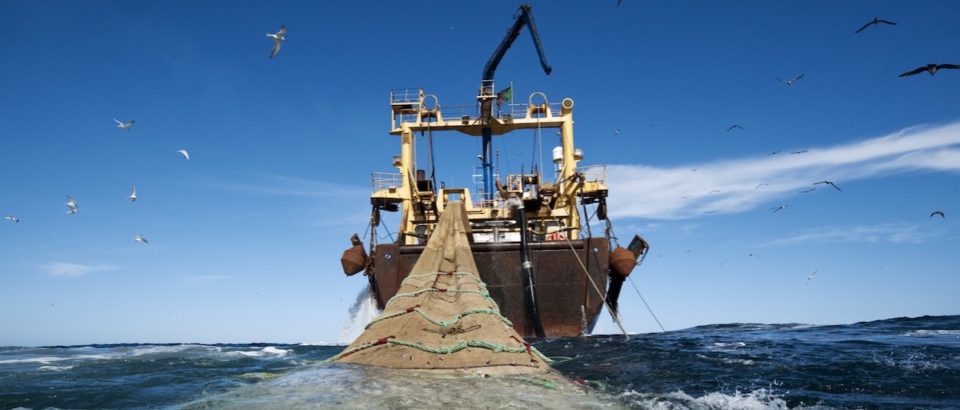The Environmental Justice Foundation has revealed that an estimated 90 per cent of trawlers operating in the country are owned by Chinese corporations.
The Foundation in a new report stated that Ghana is substantially undervaluing its fisheries resources in arrangements with Chinese fishing companies to license vessels under the Ghanaian flag.
This, according to the report, is apparently causing a loss of an estimated ¢82.5 million annually in potential fishing revenue to the state.
“Overall, it is estimated conservatively that Ghana could be generating an additional $14.4 to 23.7 million annually from its trawl sector by way of fishing licence fees and enforcement revenue for fisheries-related infringements.
“The concealment of beneficial ownership behind local front companies may serve to justify the application of low licence fees and the imposition of financial penalties at well below the statutory minimum,” the report read.
The study identified eight Chinese companies that are currently or in the recent past, have beneficially owned industrial trawlers operating under the Ghanaian flag.
These companies, the Foundation report said it accounted for 75 per cent of trawlers that were licensed to fish in Ghana at the end of 2019.
“Two companies were found to be particularly dominant in the sector: Dalian Mengxin Ocean Fishery Co. Ltd and Rongcheng Marine Fishery Co. Ltd. Together these companies accounted for 44% of licensed vessels at the end of 2019, each with a fleet of 15-20 bottom trawlers operating,” the statement read.
To solve the distant but worrying menace, the report recommended an urgent reforms in Ghana’s trawl sector that first and foremost improve transparency.
It stated that this will clarify who is benefiting from fishing access, what and how much they are fishing, how much they are paying and what these funds are used for.
“There is a need to enhance accountability through parliamentary oversight of industrial fishing licences, as required by the 1992 Constitution13, and to effectively enforce the law governing the nationality of vessel ownership in the 2002 Fisheries Act.”
Other solutions included, the collaboration between the governments of Ghana and to ensure the perpetrators and beneficiaries of illegal fishing are identified and held to account for their acts, through implementation of an enforcement regime.
Latest Stories
-
Dreams FC denies allegations of attempting to sign Najeeb Yakubu
37 mins -
Election 2024: ‘Right to free and fair elections non-negotiable’ – Akufo-Addo
42 mins -
Kurt Okraku took out my passport from the U23 squad that travelled to Japan – Najeeb Yakubu alleges
52 mins -
Where hope fails: Ghana’s decaying home for the destitute
1 hour -
NDC Mining Committee for 2024 campaign refutes allegations of recruiting thugs for elections
1 hour -
Traction Control: A lifesaver with an off switch? Here’s why it exists
1 hour -
I don’t need anyman to woo me with money – Miss Malaika 2024 winner refutes pimping claims
1 hour -
”Kurt Okraku sabotaged my national team career because I refused to sign with Dreams FC” – Najeeb Yakubu
1 hour -
Businesses urged to leverage Generative AI for enhanced customer engagement
1 hour -
MultiChoice Ghana partners with Ghana Hotels Association to elevate guest entertainment
2 hours -
Bawumia’s music streaming app or Mahama’s pay-per-view TV channel?
2 hours -
Karpowership Ghana empowers 40 Takoradi Technical University students with scholarship
2 hours -
We expect significant reduction in prices of petroleum products in coming weeks – CEO AOMC
2 hours -
Betway Africa offers once-in-a-lifetime ‘Play-on-the-Pitch’ experience at Emirates Stadium
2 hours -
I coined the term ‘hype man’ in Ghana – Merqury Quaye
2 hours

